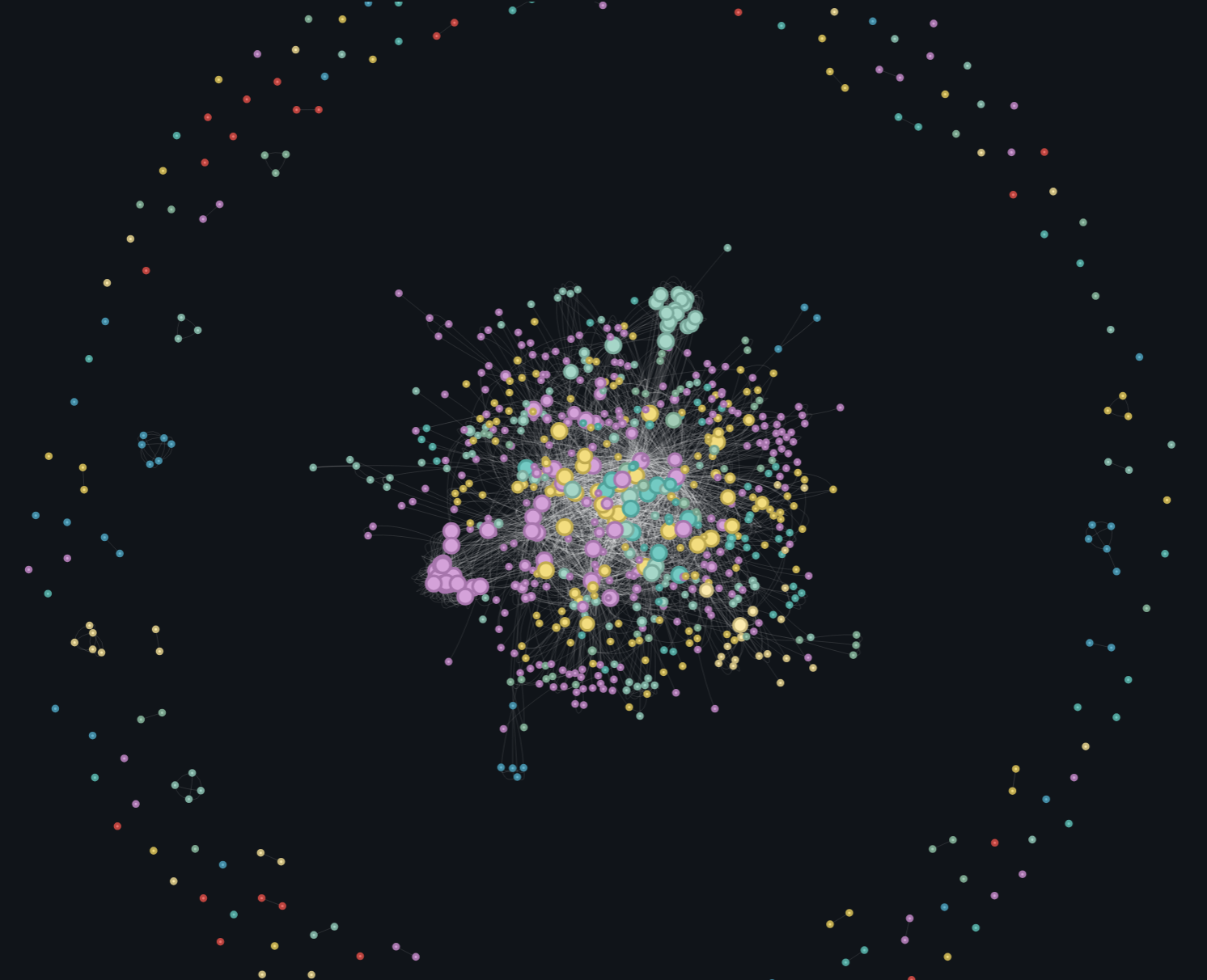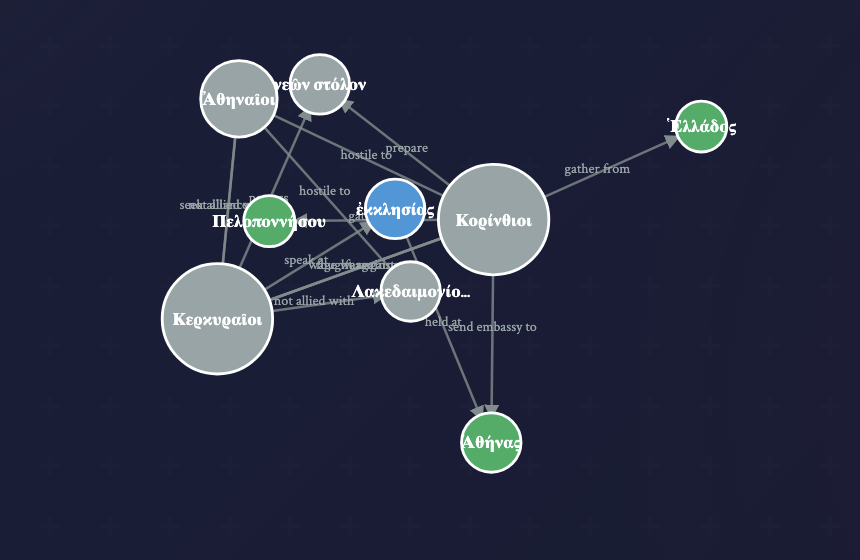Overview
CLLT applies cutting-edge NLP and AI techniques to classical texts, ancient Greek literature, and modern Greek poetry. Our digital humanities research creates innovative tools and platforms that enable scholars to explore, analyze, and understand literary texts in new ways.
By combining computational methods with philological expertise, we bridge the gap between traditional humanities scholarship and modern AI capabilities.
MEDEA Platform
MEDEA-NEUMOUSA
Advanced platform for computational analysis of ancient Greek texts, combining knowledge graph extraction with neuro-symbolic reasoning capabilities. MEDEA enables sophisticated computational analysis of classical Greek literature through:
- Automated entity recognition and relationship extraction
- Knowledge graph construction from classical texts
- Semantic search across ancient Greek corpora
- Integration of symbolic reasoning with neural methods
- Tools for philological research and text annotation
Applications: Classical philology, historical linguistics, literary analysis, digital editions of ancient texts.

Poetry and Literature Analysis
Modern Greek Poetry
Our research on modern Greek poetry applies computational techniques to study rhyme as well as the effective generation of Modern Greek poetry by LLMs. We develop methods for:
- Analyzing rhyme, meter, and stylistic signatures of interwar poetry
- Building retrieval-augmented LLM pipelines that respect poetic constraints
- Contrastive evaluation setups that keep generated poems faithful to original styles
For details see our paper Poetry in RAGs: Modern Greek Interwar Poetry Generation (NLP4DH 2025).
Literary Text Processing
Specialized NLP techniques for processing literary Greek, addressing challenges unique to literary language including figurative language, historical language variation, and stylistic markers. Our work creates computational tools that respect the richness and complexity of literary expression.
NATS Application
Natural Language Text Analysis Suite
NATS is a comprehensive application for computational analysis of Greek literary texts, providing researchers and scholars with powerful tools for text exploration and analysis.
Key Features:
- Morphological and syntactic analysis for ancient and modern Greek
- Named entity recognition for historical texts
- Semantic annotation and tagging
- Corpus search and visualization
- Integration with existing digital humanities resources
- User-friendly interface for non-technical scholars

Research Areas
Ancient Greek Texts
Computational philology, knowledge extraction, and semantic analysis of classical literature
Poetry Analysis
Computational metrics, metaphor detection, and stylistic analysis of Greek poetry
Digital Editions
Creating searchable, annotated digital editions of classical and modern Greek texts
Knowledge Graphs
Extracting structured knowledge from literary texts for scholarly exploration
Impact & Applications
Our digital humanities work supports:
- Classical Philology: New tools for textual analysis and edition preparation
- Literary Studies: Computational approaches to literary interpretation
- Historical Linguistics: Tracking language change through literary corpora
- Education: Digital resources for teaching ancient and modern Greek
- Cultural Heritage: Preserving and making accessible Greek literary heritage




